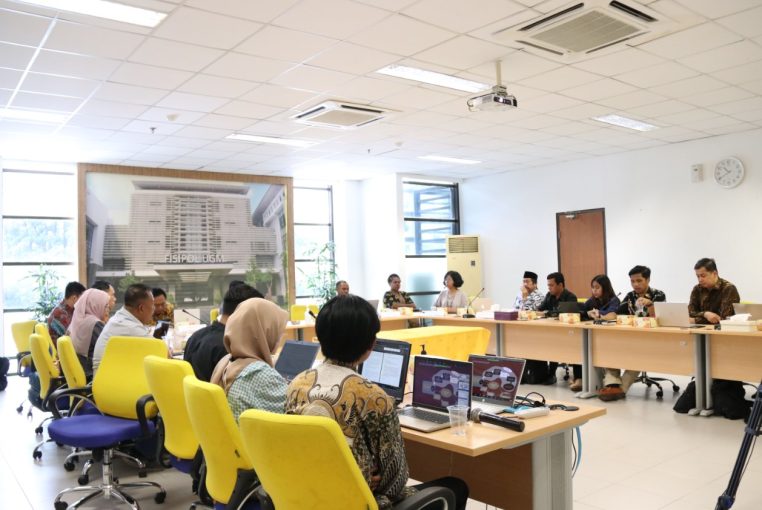
Yogyakarta, June 13th 2023─The Papua Task Force of UGM, FISIPOL UGM, and the Ministry of Foreign Affairs of the Republic of Indonesia held activities to sign a cooperation agreement between the Center for Special Issues Policy Strategy and Data Analysis of the Ministry of Foreign Affairs of the Republic Indonesia and FISIPOL UGM, and held a focus group discussion (FGD) event with the theme “60 Years of Integration: Examining Back to the Development Approach for Peace in Papua” on Thursday (13/6). The event that was held in the Dean’s Meeting Room at the BB Building on the 2nd Floor of FISIPOL UGM, aims to discuss current issues regarding the development approach in Papua which has been carried out by the government for a long time in an effort to deal with conflicts in Papua.
This event was hosted by a lecturer at the Department of Politics and Government of FISIPOL UGM, Alfath Bagus Panuntun El Nur Indonesia, S.I.P., M.A, and invited several speakers, namely Dr. Arie Ruhyanto as the Secretary of Papua Task Force of UGM, Dr. Laksmi Adriani Savitri from the Bentala Rakyat Foundation, and Prof. Dr. Melkias Hetharia, SH., M.Hum. who is a Professor at the Faculty of Law, University of Cenderawasih, Papua. In addition, this event was also attended by: Prof. Dr. Purwo Santoso, MA; Prof. Dr. dr. Sutaryo, Sp.A(K); Dr. Siti Mutiah Setiawati, MA.; and Dr. Silverius Djuni Concerned, M.Sc. who were the responders in this FGD event.
“We really want to hear input, suggestions, and views in finding grassroots problems in the land of Papua and providing solutions to the problems that occur,” said the Head of the Foreign Policy Strategy Division of the Ministry of Foreign Affairs of the Republic of Indonesia, Dr. Yayan G. H. Mulyana, in his remarks regarding the importance of involving experts and the community in resolving conflicts in Papua.
Dr. Gabriel Lele, as the Chair of the Papua Task Force of UGM, also underlined in his remarks that the role of development diplomacy in resolving the Papua conflict is important.
Regarding development diplomacy itself, Arie said that the incessant development process carried out by the government was also followed by an increase in the number of violence in Papua.
“A peaceful approach to development is easy to slip, bringing provision or economic growth, automatically triggers the presence of newcomers because of the opening up of economic opportunities. We have to admit that OAP (Orang Asli Papua/native Papuans) still cannot fully compete with newcomers. In fact, the development approach shows marginalization for OAP,” said Arie.
Laksmi stressed that one of the root causes of the conflict that occurred in Papua was the colonial culture that encouraged forced modernity. It is not uncommon for development in Papua to be used by certain indigenous people to benefit from the development process. Thus, what is actually important and becomes a blind spot for government policies in Papua is recognition as a structural effort.
Laksmi mentioned two recognition efforts, namely the recognition of civil-political rights, and socio-cultural economics, as well as cultural strategies. However, development in Papua also triggers various challenges.
“I see four root problems in Papua. They are straightening out the history of integration, human rights violations, marginalization, and development inequality. I see these four problems stem from one basic problem, which is the ideology of Free Papua. The issue of the ideology of the Papuans depends on solving the root of the problem,” said Melkias.
